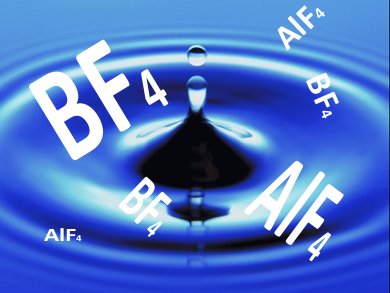Although the anomalous physicochemical behavior of water is well known, it occasionally splashes us with a molecular surprise. A theoretical study by Piotr Skurski, University of Gdańsk, Poland, and colleagues suggests that a group of inorganic species, such as BF4 and AlF4 – the so-called superhalogens postulated by Gutsev and Boldyrev in the early 1980s – could be used to ionize almost any sized cluster of water molecules in a way that was not previously thought possible.
The team’s ab initio calculations show, on the basis of geometry, energetics, and charge flow characteristics, that ionization of a single water molecule and up to tetrameric clusters is possible. However, the team suggests that there might be no limit on the size of cluster that could be ionized.
Alexander Boldyrev himself, Utah State University, USA, points out that chemists usually think of water as being rather stable and having a very high ionization potential, yet surprisingly it can be ionized by this new chemical species. This might have implications for the progress of many reactions in aqueous solution.
- Superhalogen oxidizers capable of ionizing water molecules,
Marzena Marchaj, Sylwia Freza, Olimpia Rybacka, Piotr Skurski,
Chem. Phys. Lett. 2013.
DOI: 10.1016/j.cplett.2013.05.009




